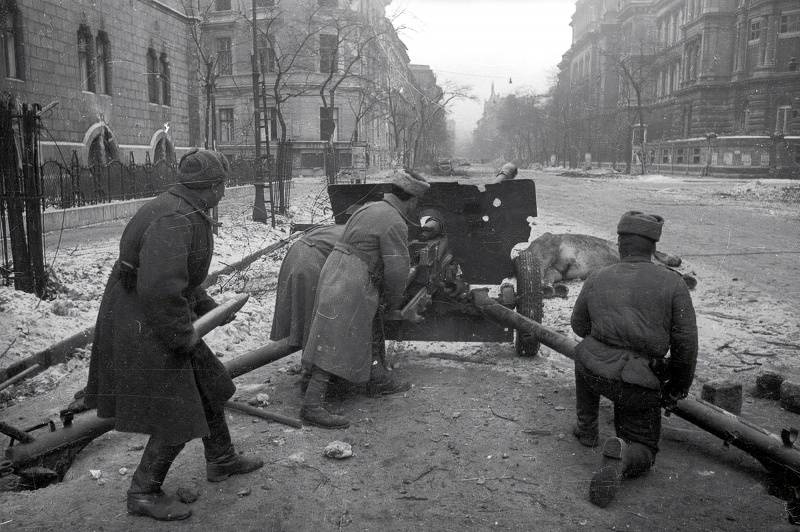Budapest surrendered to the USSR on Feb. 13, 1945, after a siege that lasted 50 days. When the Soviet and Romanian forces encircled the city on Dec. 26, 1944, the Hungarian and German forces rose to defend it. Known as the “Pearl of the Danube,” Budapest, the Hungarian capital, faced destruction and ruin during this offensive.
No one knew it at the time, but this would be one of the worst urban battles of World War II. Romania had previously been an ally of the German forces but changed sides during the Soviet Jassy-Kishinev offensive. Germany and Hungary somehow cobbled together a large enough army to battle the Russians to a standstill near Debrecen, which is in eastern Hungary.
The Soviets pushed rapidly through Hungary but slowed as it approached Budapest. The city was vitally important to Hitler and the German forces, as it was an outpost and trading town, but also because it was the capital of the only ally country they had left in Europe. Hitler thought a strong counteroffensive in Germany and a solid Polish defense would throw the Soviets off balance and keep them from building up their forces against Berlin.
Hitler wasn’t the only one who believed the capital city of Hungary was important. Josef Stalin saw Budapest as a central political prize. He knew the Allied Summit at Yalta was just a few months away, and he felt as though a swift capture of Budapest and Vienna would increase his bargaining power.
On Christmas Day, word spread through Budapest that the Soviets were at the Budagyongye Train Depot. Small arms fire near Janos Hospital started the siege. When the city unconditionally surrendered on Feb. 13, 1945, the loss of lives was huge. More than 38,000 civilians had died from military action, starvation, and mass executions of Jewish people.

